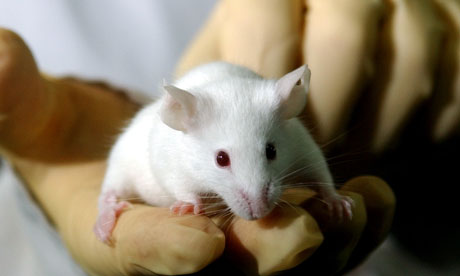In October 2012, more than 40 organisations (including Cardiff University) involved with life science in the UK signed a Declaration on Openness for work on Animal Research. They agreed to develop a Concordat that sets out how they will be more open about the ways in which animals are used in scientific, medical or veterinary research in the UK.
“We, the undersigned, commit to work together to establish a Concordat that will develop principles of openness, practical steps and measurable objectives which will underpin a more transparent approach to animal research.”
 In May 2014 the Concordat was officially launched. There are now 81 organisations signed up to delivering on the four main commitments:
In May 2014 the Concordat was officially launched. There are now 81 organisations signed up to delivering on the four main commitments:- We will be clear about when, how and why we use animals in research
- We will enhance our communications with the media and the public about our research using animals
- We will be proactive in providing opportunities for the public to find out about research using animals
- We will report on progress annually and share our experiences
At the Animal Welfare Symposium on 14th October the College of Biomedical and Life Sciences launched a series of web pages dedicated to our work on animal research. This is a positive step forward in terms of openness and transparency.
Fundamental research using animals has helped us to understand the way the body works, and research using animals plays an essential role in medical, veterinary and scientific progress. To improve the health and welfare of humans and animals we need to continue carrying out scientific research. We are investing in developing alternatives, however for the foreseeable future an important part of this research will continue to require the use of animals.
A significant part of our work going forward will be focused on the 3R’s.
We are committed to the principles of reduction, refinement and replacement.
The 3Rs state that procedures on animals for scientific research may only be carried out if there are no scientifically suitable alternatives that can replace the use of animals, reduce the number of animals needed, or refine the procedures to cause less suffering.
We recognise individual achievement in the application of the 3Rs, as well as contribution to innovation in the 3Rs. We will do this both through local initiatives and by participating in national working groups established by the National Centre for the 3Rs (NC3Rs) and other bodies.
It is a fundamental pillar of our work going forward and everyone involved in animal research should be fully aware of their responsibilities to drive this agenda forward. Earlier this month the National Centre for the Replacement, Refinement, and Reduction of Animals in Research (NC3R’s) launched their Vision for the next 10 years. It is an approach divided into five inter-related areas: Practice, Procedures, People, Places, and Policy. NC3R is looking to work in partnership with the research community to drive changes in animal use and deliver measurable impacts in the 3Rs. This document is a very positive step forward and we will engage with this approach at every opportunity.
We have made a public commitment to develop our work around the 3R’s and must now deliver on our promise. Each year we will be reviewing progress made in this area and rewarding outstanding achievement.
“The public deserves to know why and how animals are used on its behalf in scientific, medical and veterinary research in the UK. I therefore welcome this Concordat, which commits its signatories to supporting clear, transparent and open communication and proactive public engagement on this subject.
“We recognise and respect the fact that some people are opposed to, or uncertain whether to support, the use of animals in research. For people to come to their own position on this issue we feel that they should be provided with clear and honest information on the benefits of the research to humans and animals, and any harms to the animals used in research. The Commitments in this Concordat will help to address this requirement.” (Sir Mark Walport, Chief Scientific Advisor).
